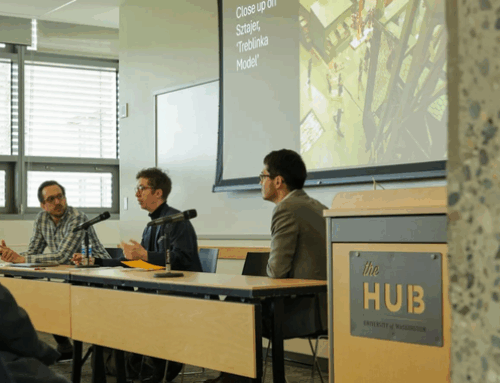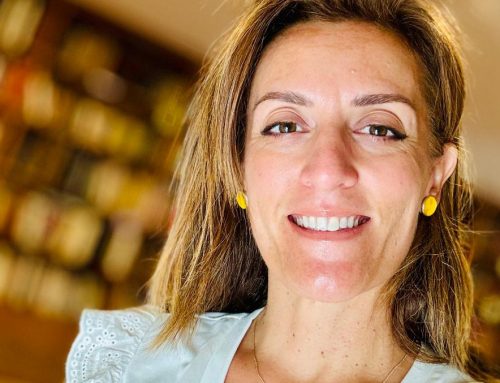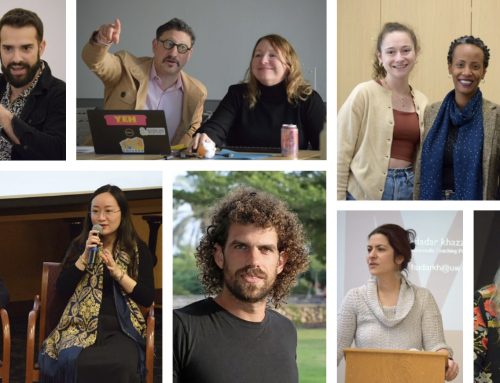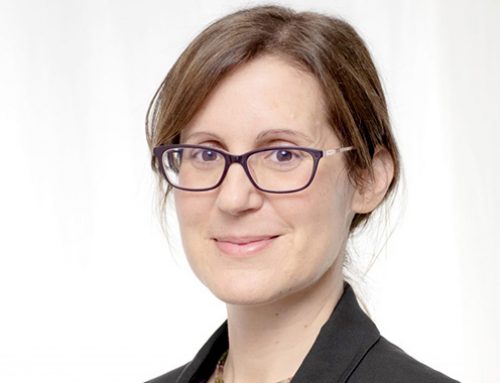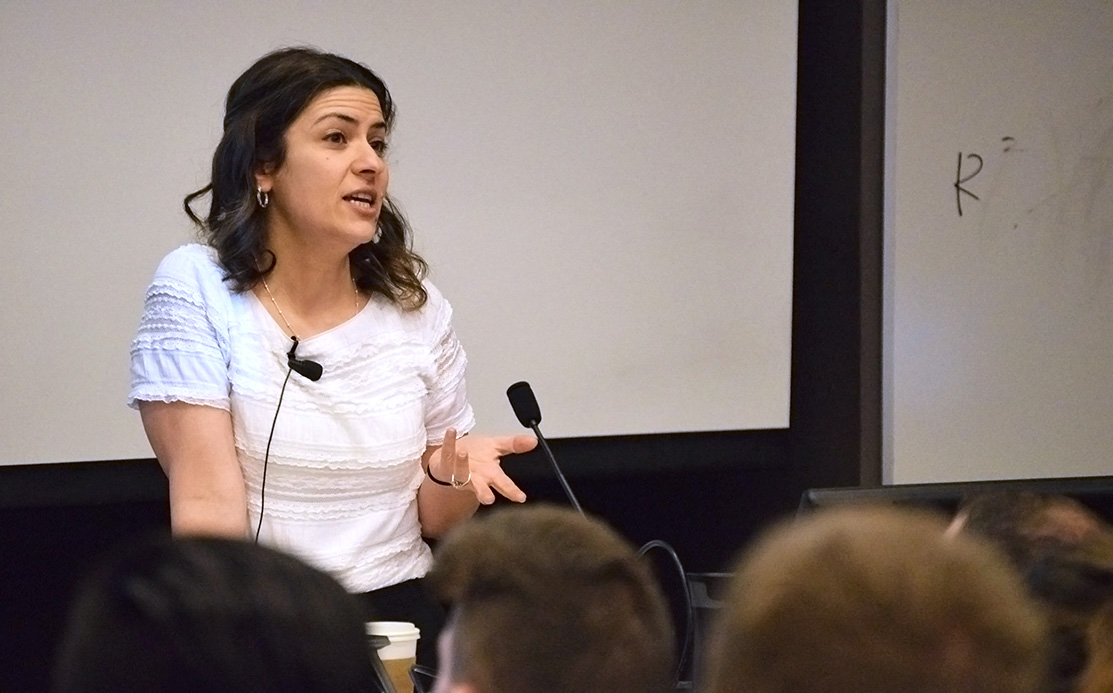
Dr. Hadar Khazzam-Horovitz delivers a lecture in fall 2019
The Stroum Center for Jewish Studies and the Department of Near Eastern Languages & Civilization (NELC) are pleased to announce exciting changes in the University of Washington’s modern Hebrew program, including a new full-time lecturer position, a new curriculum, and a new hybrid format for classes combining face-to-face instruction in the classroom with individualized online practice.
Dr. Hadar Khazzam-Horovitz has been appointed as a full-time lecturer in modern Hebrew — a program of the Department of Near Eastern Languages and Civilization — starting in autumn 2019, thanks to support from the College of Arts and Sciences, the Benaroya Endowment in Israel Studies, and the Stroum Center for Jewish Studies.
Khazzam-Horovitz has had many years of success teaching Hebrew at the University of Washington, drawing consistent raves from her students. As lecturer, Khazzam-Horovitz, who holds a Ph.D. from the UW School of Law, will teach first- and second-year modern Hebrew, as well as a variety of other courses related to Hebrew and Israeli culture. Upcoming courses include:
- Bioethics: Secular and Jewish Perspectives – Winter 2020, 3 credits
This popular course deals with fascinating contemporary issues around ethics in medicine and scientific research, and counts toward majors in Jewish studies, NELC, philosophy, and medical and health sciences. - Introduction to Hebrew Language and Culture – Spring 2020, 2 credits
Taught in English, this credit/no credit (pass/fail) course offers students an enjoyable, low-stakes opportunity to become familiar with Hebrew’s basic linguistic structures and its many layers, from traditional prayer to contemporary slang, as well as its remarkable history. Students also learn about the Hebrew calendar, Jewish and Israeli holidays, and more. Register early to get a seat!
Check out all upcoming courses in Hebrew and Jewish studies >
The Stroum Center and NELC wish to thank long-time Hebrew lecturer Tovi Romano, who taught second-year Hebrew courses at the UW from 2010-2019. During her time as a Hebrew language instructor, Romano consistently employed innovative approaches to language teaching, as exemplified in her recent course Dancing in Hebrew, which blended Israeli folk-dancing with immersion in modern Hebrew. Her dedication, warmth, and commitment to the modern Hebrew language will be greatly missed!
Cutting-edge curriculum & new hybrid options
On the occasion of this new full-time lecturer appointment, NELC is also revising and updating its curriculum in modern Hebrew. The program will adopt a new textbook series, Shalom Aleph, Bet, and Gimmel, developed at Binghamton University and now integrated into the curriculum at institutions like Cornell and Princeton, among others.
First and second-year courses in modern Hebrew will also be transitioning to hybrid formats. Classes will continue to meet for live language practice, but will also be supplemented by individualized exercises. This approach will offer students more flexibility with their scheduling, and will allow students to complete listening exercises at their own pace, as well as providing instant feedback on homework assignments.
Through online voice recording and interactive exercises, students will also receive more individualized attention to oral proficiency — without losing the personal interactions, fun, and dynamic atmosphere for which Khazzam-Horovitz’s Hebrew classes are famous!
Why take Hebrew?
Hebrew language skills are crucial for students who are interested in Israeli literature and culture, Near and Middle Eastern history and politics, linguistics, Jewish languages, comparative religion, the Bible, and more. Modern Hebrew classes enrich student preparedness to study with a wide range of faculty, including Naomi Sokoloff, Liora Halperin, Devin Naar, Noam Pianko, Mika Ahuvia, Hamza Zafer, Scott Noegel, and Gary Martin.
UW Hebrew student Alex Peterson explains what it’s like to learn Hebrew
Learn why a biology major recommends learning Hebrew and what studying Hebrew taught an economics major about the power of language.
Courses for all levels & funding opportunities
Courses in modern Hebrew suitable for advanced students, including heritage and native speakers, are available on a regular basis. These courses include Modern Hebrew Prose, Hebrew Fiction, Hebrew Poetry, Hebrew in Song, Poetry and Prayer, and Introduction to Hebrew Literature.
Independent study opportunities are also available, particularly for students who are interested in reading works in English-language courses in the Hebrew originals.
Funding is available to support learning Hebrew! Students can apply for up to $1500 to study Hebrew via a summer intensive course, or through study abroad. Learn more about our opportunity grants supporting the study of Jewish languages locally or abroad. Applications for funding are accepted every fall and spring.
More information about UW Hebrew offerings for students in secondary school is also available. Please contact program director Naomi Sokoloff for more information.
Beginning and intermediate modern Hebrew are offered every year starting in the fall. Check our course listings to learn more about upcoming offerings in Hebrew!

